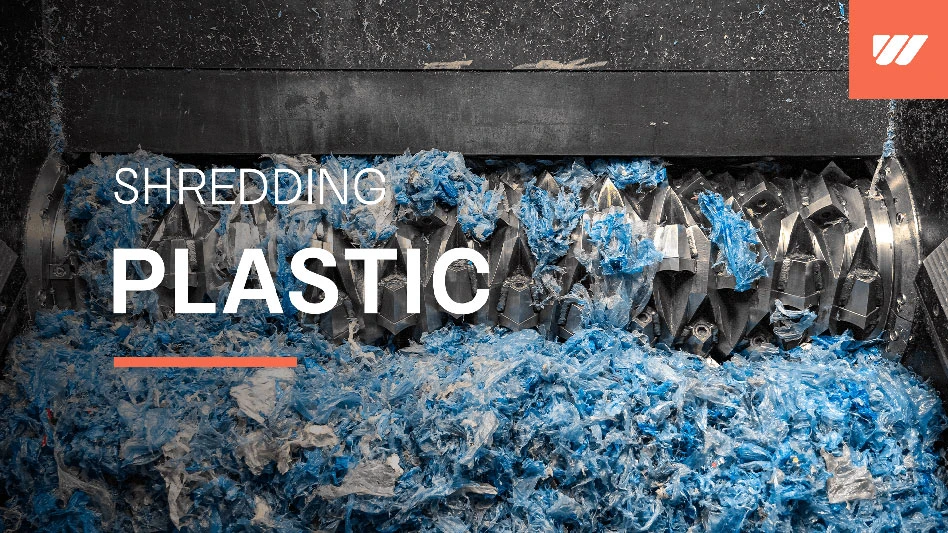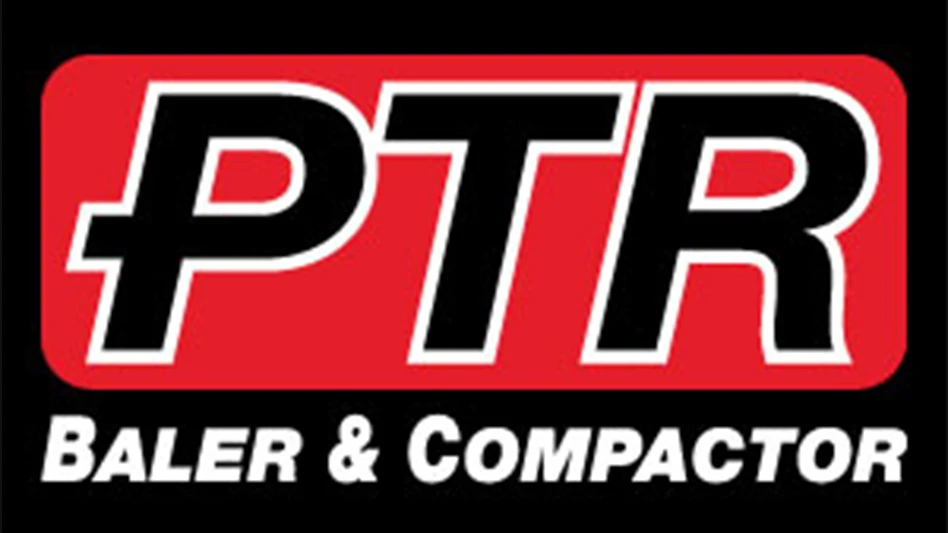
President Donald Trump has demonstrated each time he has been in office that he does not see carbon emissions-related policies as noted in the Paris Agreement under the United Nations Framework Convention on Climate Change as a suitable priority for the United States.
That contrasts sharply with the European Union’s policies, which include a series of directives and regulations that have focused on reducing Europe’s carbon footprint.
In Europe, producers and consumers of steel and aluminum are at the leading edge of the Carbon Border Adjustment Mechanism (CBAM) regulation. Those two basic materials will have emissions-related penalties or protections applied starting next year, depending on their calculated CO2 emissions per ton.
In most cases, recycled-content steel and aluminum compare favorably with their mining-intensive counterparts in terms of having lower carbon footprints. While that could cause some metals producers to view CBAM favorably, the overall industrial sector in Europe has found several sources of concern regarding the looming CBAM regimen.
“There can be no decarbonization and competitiveness without circularity, and no sustainable future without a strong recycling industry.” – EuRIC Secretary General Julia Ettinger
Lacking energy to comply
With public opinion in Europe largely favoring emissions reduction, European trade groups predominantly have avoided criticizing the goals of CBAM and instead focused on the region’s existing carbon emissions trading system as well as Europe’s energy costs in the wake of its broken link to Russian natural gas.
In a position paper published in November of last year, Brussels-based European Aluminium says: “CBAM was developed to ensure that decarbonization goals are met by preventing carbon leakage and promoting a level playing field for industries operating within Europe. As European Aluminium, we support these climate objectives.”
The authors say that following Russia’s invasion of Ukraine in early 2022 and Europe’s subsequent withdrawal from Russian energy, European metals producers face a costly hurdle to quickly lowering their carbon footprints.
“The aluminum industry has already invested heavily in decarbonization, but we continue to face pressures from the unique indirect carbon costs only European producers face in their power price due to the EU’s emissions trading system (ETS),” the association writes, citing rising energy costs as hampering its sustainability efforts.
Among the seven recommendations European Aluminium made, the first says, “Due to the challenges in accurately reflecting the indirect carbon costs faced by European producers under the EU ETS, we call for the exclusion of indirect emissions from CBAM for aluminum goods until the EU electricity grid is fully and permanently decarbonized, which is unlikely before 2035.”
Brussels-based Eurofer, an organization representing European steelmakers, also says the EU ETS system means its metals-producing members are being exposed to “a unilateral carbon price” compared with the rest of the world.
The organizations also express concerns about whether European users of high-emissions metals products, which often are more affordable, will find workarounds to continue using these forms of steel and aluminum.
Plugging the leaks
Industry trade groups in Europe regularly use the word “leakage” to refer to the fear there will be an inevitable set of tactics for buyers and sellers of high-carbon-footprint steel and aluminum to continue with business as usual.
In summarizing a meeting of some of its members last May, Eurometal, a Luxembourg-based association of steel and metals distributors, said considerable doubt was expressed about the effectiveness of the looming CBAM system.
Eurometal’s SSC Arbeitskreis (Steel Service Center Working Group) gathered members from Germany, Austria, the Netherlands and Belgium, saying the “somber mood” reflected concerns over the impact of the CBAM on the future of European steel processing.
In particular, attendees said their customers could choose to seek workarounds to CBAM, thereby threatening service centers in the EU that process domestically made metal.
The organization said efforts by Asian steelmakers and suppliers involving those “workaround solutions” are threatening the European metal forming industry, service centers and, ultimately, European steel mills.
In Southeast Asia, the idea of high-emissions metal flooding the market is not notional but instead has hampered the recycled-content electric arc furnace (EAF) steelmaking sector in Malaysia and other nearby nations.
At about the same time the Eurometal working group was meeting last May, the secretary general of the Malaysia-based South East Asia Iron and Steel Institute (SEAISI) issued an essay describing the “degreening” of the steel industry in that part of the world.
While Yeoh Wee Jin of SEAISI did not specifically mention any nations in his essay, much of the newer and planned capacity in Malaysia and neighboring countries has been made by Chinese steelmakers using virgin raw materials and emissions-intensive blast furnace/basic oxygen furnace (BF/BOF) technology.
Also within in the region, India is a high-volume producer of coal- and iron ore-based steel.
The result has been an EAF presence in Southeast Asia that could be on its way down from a high of approximately 95 percent market share in 2011 to as low as 38 percent in 2028.

With India and China, the world’s largest steel producer, relying heavily on BF/BOF technology, steelmakers in those countries seem to be showing a preference for “business as usual” rather than investing in emissions reduction. Thus, Eurometal members see trouble ahead.
Last year, Eurometal members indicated some of their largest metals consuming customers were looking for alternatives outside European borders and opting to import ready-to-use steel products to circumvent the regulation.
The notion of bringing in metal components from outside the EU to avoid ETS and CBAM costs is on the minds of trade groups beyond Eurometal.
Horizontal & vertical concerns
Echoing Eurometal’s concerns, European Aluminium recommends expanding CBAM’s scope to include downstream products containing aluminum or made entirely from aluminum.
“Without this [expansion], limiting the CBAM coverage to upstream aluminum products will increase costs for downstream products, leading to industry relocation or increased imports of finished goods, undermining the CBAM’s effectiveness.”
In a January statement, Eurofer also recommends that EU policymakers extend CBAM’s scope to include “steel-intensive downstream sectors.”
Eurofer’s caution to legislators and regulators is that without the downstream addition and other adjustments, the combination of CBAM and the scheduled phase-out of free allocations will not provide adequate protection against carbon leakage and even further incentivize the relocation of production to third countries, affecting steel and downstream sectors.
A January essay by staff members of the Brussels-based Centre for Economic Policy Research (CEPR) claims the 10-year history of the EU ETS system shows that such leakage workarounds almost certainly will be considered following the implementation of CBAM.
“Following the introduction of the [ETS] scheme, the share of dirty inputs sourced from nonparticipating countries has increased significantly, consistent with carbon leakage,” the CEPR’s Pierre Coster, Julian Di Giovanni and Isabelle Mejean write.
“A policy [that] eliminates the carbon leakage incentives, such as a carbon border adjustment mechanism, could reduce emissions by more but would likely lead to higher prices as well.”

The CEPR staff members also say their research found evidence of carbon leakage in firm-level import data during the 2010s, when the EU ETS system was becoming increasingly binding.
They add, however, that contrivances to avoid CBAM costs could be tougher for companies to enact.
“The combined EU ETS [and] CBAM tax is far more powerful than the EU ETS alone, as the CBAM eliminates carbon leakage incentives,” they say.
A report published this February by a working group of the Paris-based Organization of Economic Cooperation and Development (OECD) predicts that CBAM could lead to relatively modest price increases up to 0.6 percent.
The OECD presents CBAM more as a disincentive to leakage rather than expanding the problem.
“Without the CBAM, European firms import more of their emissions-intensive intermediary products from countries with higher emissions intensities,” the OECD report says. “This shift can result in increased ‘dirty’ production and, consequently, higher carbon emissions in those countries.”
Among recycling groups in Europe, CBAM and other decarbonization policies are criticized for not paying greater attention to the emissions savings role recycling plays.
A late February statement put out by the Brussels-based European Recycling Industries’ Confederation (EuRIC) says policies, including the Clean Industrial Deal, fail to link decarbonization with circularity or recognize “the key role EU recyclers play in cutting carbon emissions and generating resources.”
“The Clean Industrial Deal must drive action, not just ambition,” EuRIC Secretary General Julia Ettinger says. “Recyclers urgently need support as they battle skyrocketing energy prices, weak demand and excessive red tape. There can be no decarbonization and competitiveness without circularity, and no sustainable future without a strong recycling industry.”
The organization has urged EU policymakers to link decarbonization with circularity and competitiveness by including mechanical recycling among “key net-zero technologies,” saying the practice significantly reduces carbon emissions, decreases reliance on virgin raw materials and ensures a resilient and circular European economy.
WANT MORE?
Enter your email to receive our newsletters.

Explore the April 2025 Issue
Check out more from this issue and find your next story to read.
Latest from Recycling Today
- Recyclers likely to feel effects of US-China trade war
- BCMRC 2025 session preview: Navigating battery recycling legislation and regulations
- Yanmar Compact Equipment North America appoints new president
- LYB publishes 2024 sustainability report
- Plum Creek Environmental acquires Custom Installation LLC
- Avis introduces Harris American Co.
- International Paper in talks to divest 5 European box plants
- Recycled PP from Polykemi, Rondo Plast used in flood protection product






